25 articles

Traditionally, a young woman used to be presented with a bundle of goods to send her off with to adult life. Today’s bottom drawers aren’t necessarily tied to marriage, nor are they strictly material. Yet, the bundle one leaves the house with is as important as ever. In this focal point, we take stock of the notions our foremothers presented us with: women’s ideas and achievements that define our understanding of power, gender and violence, bodies, connection and agency.
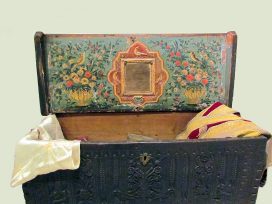

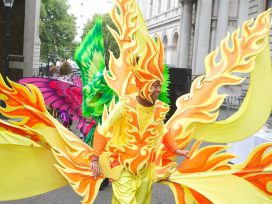
After being expelled from the USA for her affiliation to the Communist Party, Trinidad-born Claudia Jones became a key figure in the movement for racial justice in Britain. Known as the ‘mother of carnival’, rarely are the various strands of Jones’ life as a journalist, activist and poet pictured together.

A woman of many words, marginalized amongst feminists during her lifetime, who continued to speak out against sexual violence – take an International Women’s Day moment to engage with the #MeToo movement’s posthumous champion.
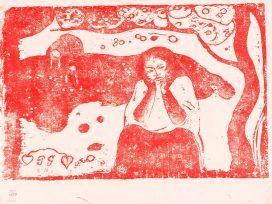
From introducing feminist literature on the pages of a semi-pornographic magazine to challenging the self-image of the socialist state of Yugoslavia: journalist and novelist Slavenka Drakulić has broken ground in many fields in her native tongue even before rising to international renown.
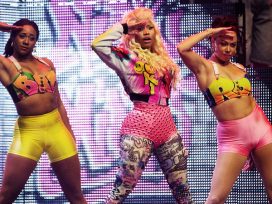
Reappropriating stereotypes sends out a powerful message. And women of colour are putting themselves in a strong position, turning abusive rap into emancipation, overcoming issues of gender, class and race.
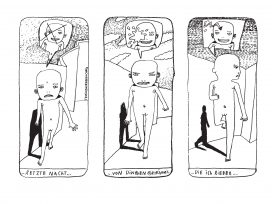
Thirty years ago, feminist comics declared war on the gender order. Combining satirical storytelling with visions of carnivalesque subversion, this undervalued artistic discipline transgresses both bodily and aesthetic norms.

The poetic writings of Inger Christensen, Kirsten Thorup, Vita Andersen and Sonja Åkesson shed light on the sensibilities of homemakers and carers in invisible reproductive workplaces, demanding the social and political acknowledgement of their labour merits.

Traditionally, young women used to be presented with goods as a send off into adult life. Today’s bottom drawers aren’t necessarily tied to marriage, nor are they strictly material. Yet, the bundle one leaves the house with is as important now as ever. In this focal point, we take stock of the notions our foremothers presented us with: women’s ideas and achievements that define our understanding of power, gender and violence, bodies, identity and agency.
Lesbian identities have an established place as herstory within feminism and queer history. But what must the young 1970s scholar’s archival and personal experiences, following an article on love and ritual, discovering women’s accounts of their own lives for the first time, have been like?
Gaby Zipfel, the former editor of the journal ‘Mittelweg 36’, was for three decades one of the driving forces behind the Eurozine network. Her vision, intellectual energy and unmatched capacity for critique will be sorely missed.
Textiles are more than just yarn – they are memory. Migrants pack them in their bags to recreate the homes they have lost. Burcu Sahin explores the timeless language encoded in stitching.
Simone de Beauvoir seems impossible to avoid when discussing feminism, even to this day. Seventy years after ‘The Second Sex’ was published, Eve Gianoncelli reviews French new conservative authors who set out to forget about Beauvoir, only to be found captured by her most influential legacy.
The ‘question of women’s rights’ has been asked and answered in very different ways in Turkey since the founding of the secular republic in 1923. Ayşe Durakbaşa traces this history from ‘state feminism’ to the second wave and the Islamic Women’s Movement, shedding new light on the ruling AKP party’s legislative agenda.



